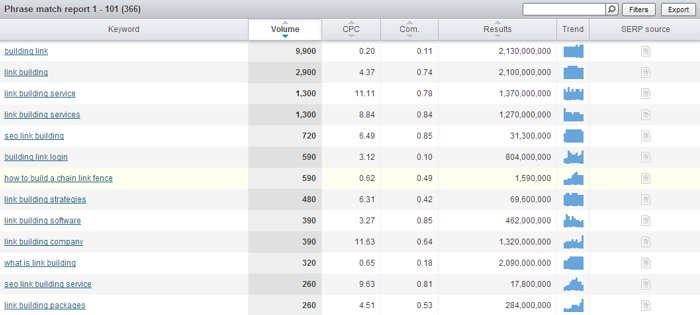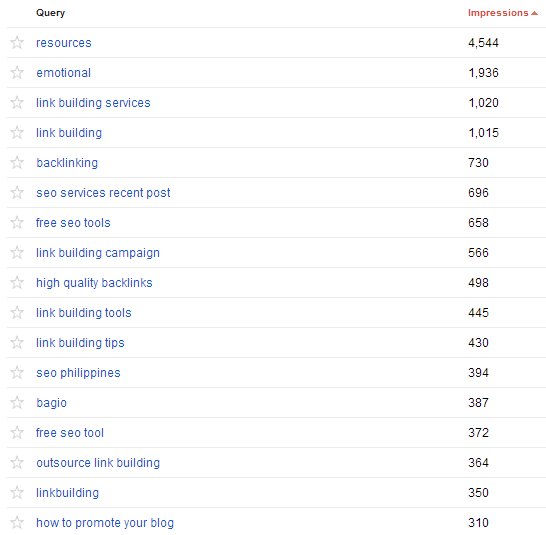Importance of Keyword Research in Link Building
The power of keywords in link building is still evident in today’s search marketing. Keywords are often used in different ways and for different activities/phases in the link building process.
With the right discovery of keywords, one will be able to understand the behavior of his target audience, tap into their interests through existing content assets, and finally, convert them either as customers or brand followers.
In this post, I’d like to share the top reasons why keyword research is important in link building. Let’s get started.
Keywords as Anchor Texts
Anchor Text is the visible, clickable text in a hyperlink. It is the phrase/word used when linking to your site’s internal pages or pages from other websites.
Targeted keywords are used as anchor texts for internal linking and link building from other websites to help certain pages rank on search engines. However, you need to be careful with your anchor texts to avoid over optimization.
You want to rank for certain keywords while limiting your anchor text distribution. How can you do that? Well, you have to find other related keywords that you can use as secondary anchor texts to build high quality backlinks to your internal pages.
I always go over at SEMRush to search for keywords that I want to rank for. The tool will show up related terms that I can also target for my blog and third party content.
If you’re looking secondary anchor texts, then simply type in your main keyword in SEMRush, then click search.
Vary your anchor text distribution using your main and secondary anchor texts. This way, you can perform better on search results both for main and secondary keywords.
You can also check your Google Webmaster Tools account to discover more profitable terms. Just head over to Search Traffic – Search Queries.
Click Impressions, which are the number of times pages from your site appeared in search results.
The terms that have high impressions are keywords that you may have targeted or not. If some of the non-targeted keywords are related to your main keywords, then you can use them as your secondary anchor texts in link building. This can help (1) boost your content assets for those non-targeted keywords and (2) get rid of over optimization for your main terms.
Keywords for Website’s Content
When doing SEO for clients, one thing that I always consider in on site optimization is keyword matching. It simply means that every page of your website should match to a certain keyword that you want to rank for on SERPs.
In keyword research, it is important to understand the intent of your searchers. Search intent is categorized mainly as informational, transactional, navigational and commercial investigation (as explained in this blog post).
- Informational – the searcher is looking for information/details about a certain topic (e.g. benefits of exercise).
- Navigational – contains the details of the brand (e.g. Amazon products).
- Commercial Investigation – involves specific parameters for researching an offering (e.g. SEO services pricing).
- Transactional – the searcher is ready to buy/purchase the product/service (e.g. buy cellphone)
When you determine the category of your keywords, then you can now match them to your site’s internal pages. Here’s an example:
- Informational keywords can be your topics/ideas for your blog content (e.g. blog posts).
- Navigational keywords can be used as content ideas for FAQs, pages and review pages of your products since searchers using those keywords are already familiar with your brand.
- Commercial investigation keywords are appropriate to use for product comparison pages (e.g. the advantages of your product over other brands).
- Transactional keywords can be your target phrases for your landing pages. Given that searchers are ready to buy the product, you only need to explain why your product deserves a purchase – use your copywriting skills here.
Understanding your user’s intent assures that every person who visits your website is satisfied with the information/value provided by your page/post.
Keywords as Guest Post Titles
Guest blogging should always start with a strategy. Without it, you can’t maximize the value of your third party content (guest post).
You don’t just want to post your content on other website for the sake of earning a single link. You also want to rank it on search engines, earn search traffic and pass more link juice to your website.
One thing you need to consider in guest blogging is selecting the best keywords regardless of their competition levels. Even if the keyword has a high competition, you can still target it as your main anchor text and use it as part of the title for your guest post. Your guest article can rank for its targeted keyword when it is published on a website with high Domain Authority and SE Price (SEMRush metric).
Final Thoughts
Indeed, understanding the value of keywords can help you identify your customers’ needs, focus on the value proposition of your brand and help you acquire high-end links for your website.


